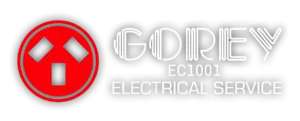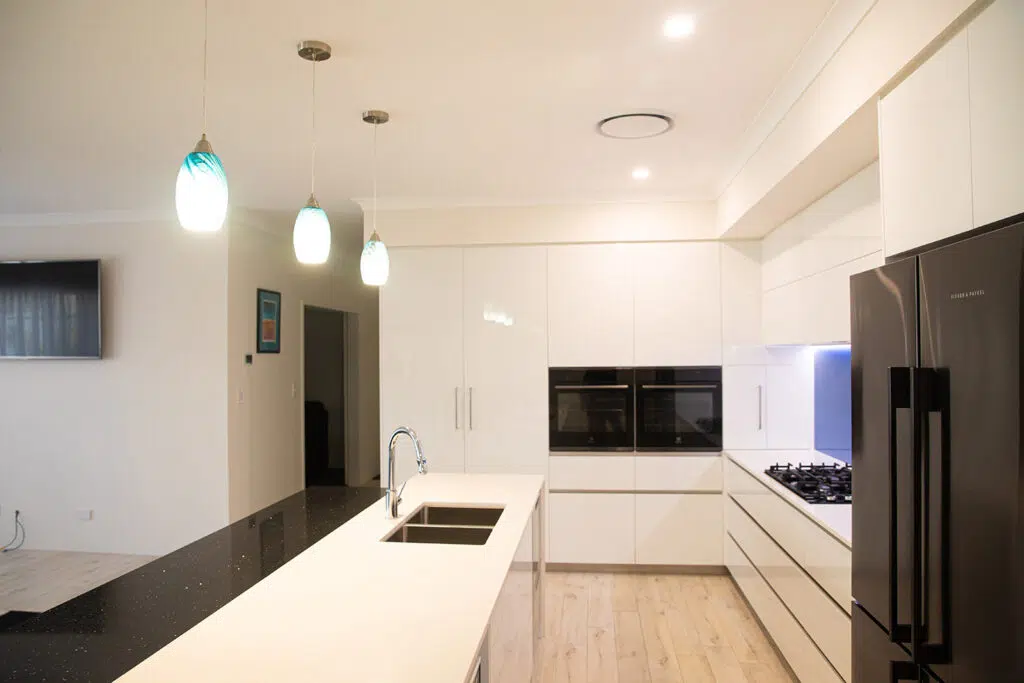Maintain The Safety of Your Property
Did you know that you can’t smell smoke when you are asleep….how will you wake up if there is a fire? Smoke detectors, also known as fire alarms, are designed to wake you up in the event of a fire or if there is a detection of smoke, helping ensure you can get to safety before it’s too late. These small but powerful devices play a vital role in early detection of fires so it is essential that all RCD’s (Residential Current Device) and smoke alarms are installed correctly and are regularly maintained.
Do you know if you have enough alarms at your property? Do you know if they even work? Throughout this blog, we’re going to discuss everything you need to know to ensure your kept safe in the unpredictable event of a fire.
How Often Should Smoke Alarms Be Checked?
The Department of Fire and Emergency Services (DFES) recommend that smoke alarms should be tested once per month to ensure the battery and alarm sound are both operational and in good condition.
Smoke alarms typically have a 10-year battery life however, you still need to complete these monthly tests to ensure it is working and if necessary, replace the batteries. Now days, smoke alarms are generally mains powered and have back-up batteries, but this is not always the case. It is good practice to be aware of the alarms that you have, and ensure they are tested monthly as recommended.
How to Clean Your Fire Alarm
Cleaning your smoke alarm is a very easy process, especially when we consider the significance of its purpose. The Department of Fire and Emergency Services (DFES) recommends the following maintenance routine:
- Test your smoke alarm/fire detector once per month to ensure both the battery and the alarm sounder are operating.
- Check and remove any build-up of dust and cobwebs as well as clean with a vacuum cleaner at least every six months.
- When vacuuming, use a soft brush attachment around the smoke alarm vents.
- Use a surface insect spray around the smoke alarm to prevent insects nesting inside.
- Replace your batteries annually to ensure it remains in good working order (mains powered smoke alarms generally have back-up batteries).
A friendly reminder: Let April Fool’s Day be a reminder to change the battery in your smoke alarms!
Replacing Smoke Detectors
Now days, smoke alarms are required to be permanently connected to the mains power supply, therefore require a licensed electrician to either connect or disconnect the smoke alarm. If your alarm is faulty or simply reached the end of its 10-year life cycle, an electrician will need to disconnect and replace the alarm for you.
Rental Property Smoke Alarm Legislation around Australia
Across Australia it is the responsibility of the rental property owner to ensure that smoke alarms are fitted into their rental properties and are:
- Less than 10-years old
- Operational and clean before the property is occupied
- Permanently connected to consumer mains power supply
Tenants are responsible for keeping the alarms in working order to the extent practicable such as performing monthly tests to ensure the batteries are active and the alarm sounder is operating, changing the batteries if reasonably accessible, and cleaning away any build-up of dust or cobwebs. If tenants find smoke alarms are non-responsive, they are required to contact their rental agency or property owner to schedule an electrician to test and replace any alarms where necessary.
Additionally, regulations require all residential homes to be fitted with at least two RCDs installed on the switchboard to protect all power and lighting circuits in the house before the property can be leased.
Smoke Alarm Regulations in WA
Hard-wired smoke alarms (installed by a licensed electrical contractor to mains power) are compulsory in all new homes and new leases for rental properties in WA. Smoke alarms must be tested and replaced regularly (every ten years) in order to be effective.
The new Australian Standard can be identified on smoke alarms which display a AS 3786:2014 marking/code. Any code displayed which differentiates from this, is outdated and will require replacement.
Need Help with Your Smoke Alarms?
At Gorey Electrical, our experienced team have the knowledge and tools to help you keep your family safe. But remember, a smoke alarm can only save lives if it’s working correctly. So, remember to test your alarms regularly, replace the batteries at least once a year, and replace the entire unit every 10-years.
If you require new or replacement smoke alarms/fire detectors to be installed into your property, please reach out to our friendly team to discuss how we can help.
Frequently Asked Questions
A smoke alarm is required to be installed between living areas and all bedrooms. If this can be achieved with one smoke alarm, then only that one is required.
Yes, but only where the wiring cannot be concealed or there is no mains power to the dwelling. In other cases, local government approval must be organised.
Residential properties built after 31 April 2015, do need to be interconnected, however, residential properties built before this date are not legally required to have interconnected smoke alarms.
In most cases, no. The smoke alarm must be directly connected to consumer mains power.
The 10-year replacement applies to all smoke alarms, including hard-wired models connected to the mains power. Installation and replacement of smoke alarms is the responsibility of the property owner, not the tenants.
As of May 1st 2015, smoke alarms are required to be permanently connected to the mains power supply, therefore a replacement of hard-wired smoke alarm must be installed by a licensed electrical contractor and comply with electrical and building regulations.

